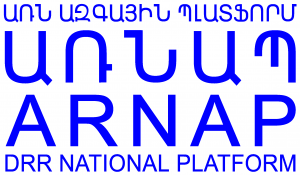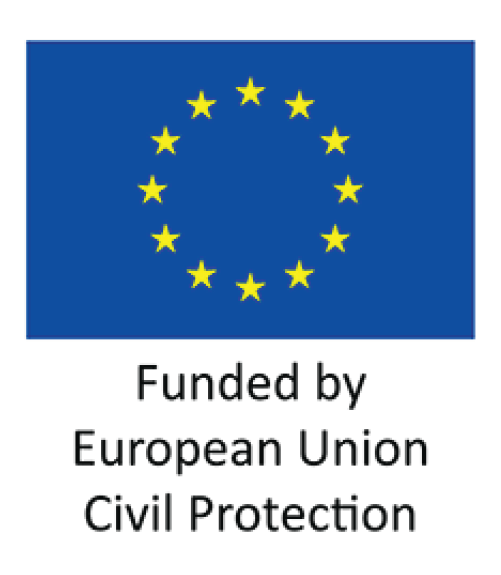 National Observatory of Athens’ (NOA) Institute of Geodynamics (Lead Partner)
National Observatory of Athens’ (NOA) Institute of Geodynamics (Lead Partner)
G.I. is one of the oldest Institutes in Greece operating continuously since 1893. In 1897 the first seismograph was installed in Athens and in 1899 the first seismic network started to operate. Since then, systematic and detailed seismic observations started for the region extending from 34° to 42° N and 19° to 30° E. The location of the Head Office of I.G is on the hill of Nymphs, opposite to Acropolis, at the center of Athens. It is the main center in Greece, for the continuous monitor of the seismicity of the country and reporting to national and international authorities. Moreover Institute’s aim is the study and research in the fields of: seismology, physics of the earth’s interior, geophysics, plate tectonics, volcanology and geothermy, neotectonics, tsunamis, seismotectonics. and Strong Motion and Engineering Seismology.
 European University of Cyprus’ Centre of Excellence in Risk and Decision Science
European University of Cyprus’ Centre of Excellence in Risk and Decision Science
The Center for Risk and Decision Sciences (CERIDES) provides a holistic offer to the academic and business world. The Center is based on the offering of educational (taught), research and consulting solutions. The Center has emerged from the synergies that have been identified between the Center for Risk, Safety and the Environment (CERISE) and the Decision Support and Systems Optimization (DSSO) Laboratory and operates under the auspices of European University Cyprus. It is the first cross-disciplinary, cross-School Center of Excellence of European University Cyprus.
The areas of focus of the Center of Excellence revolves around the development, use and evaluation of primarily quantitative and to a lesser degree qualitative methods in order to measure, assess, manage and communicate risk, and to analyze, design and implement decision-making mechanisms and systems.
 Bulgarian Academy of Science’s Center for National Security and Defense Research
Bulgarian Academy of Science’s Center for National Security and Defense Research
The Centre for National Security and Defense Research (CNSDR) was established in 2002 to facilitate security and defense research within the Academy. The Centre’s first line of activities are information collection and dissemination to the Academy’s institutes and research teams on end-user needs, NATO and EU programs, and opportunities for bilateral and multilateral cooperation.
To this end CNSDR maintains close contacts with all main end-users in the Republic of Bulgaria – the Ministry of Defense, the Ministry of Home Affairs, General Directorate “Civil Protection”, “G.S. Rakovski” Defense and Staff College, Academy of the Ministry of Interior and other security research actors. The Centre maintains a database of available research capabilities and technologies, and informs potential end-users and facilitates contacts and cooperation between researchers and end-users.In the period from 2003 to 2007 the Centre had been assigned to perform the role of Secretariat of the Scientific-Coordination Council at the Permanent Government Committee for Protection of the Population in Emergencies. CNSDR organises national competition for concepts and ideas for improving scientific support to security sector transformation and a Bi-annual National Emergency Management Conference. The Centre regularly publishes proceedings from these major scientific events. Since 2007 the Centre has been tasked to provide Bulgarian stakeholders with information for the Security theme under EU 7-th Framework programme (FP7). The Centre’s Director was а member of FP7 Security Programme Committee and an expert from the Centre served as National contact person (NCP) for FP7 Security theme. For years the Centre’s Director has served as National representative in NATO Scientific Committee.
 American University of Armenia’s (AUA) Center for Responsible Mining
American University of Armenia’s (AUA) Center for Responsible Mining
Through research, training, and advocacy, the American University of Armenia Center for Responsible Mining (AUA CRM) promotes the creation and adoption of global best practices in socially, environmentally, and economically responsible mining of Armenia and the region. To archive this, AUA CRM will engage with all key stakeholders including industry, civil society, environmental advocacy groups, financial institutions, and the public sector.
 Armenia’s National Platform for Disaster Risk Reduction (known by its Armenian acronym ARNAP).
Armenia’s National Platform for Disaster Risk Reduction (known by its Armenian acronym ARNAP).
ARNAP was established by the Armenian Government Decree: December 2, 2010, N 1694-N. ARNAP is a structure elaborated and administered with the involvement of main stakeholders and set up as a Fund by the Government of Armenia. It aims to promote DRR implementation at all levels, coordinate, analyse and consult in main sectors which require joined, participatory and coordinated actions.
ARNAP contributes to emphasizing DRR functions in the country’s development policies, strategies and programmes /in accordance with priority actions of the Sendai Framework for Action. The latter promotes elaboration and further use of DRR national strategy in accordance with the conditions in the country. ARNAP ensures participatory process including government bodies, private sectors, UN Agencies, NGOs, Academies and research organizations including professional bodies.
The ultimate goal of the ARNAP is to support in the establishment of multi-sectorial mechanism for DRR in the Republic of Armenia, reduction of risks of technological and natural emergency situations and reduction of and early recovery from implications of emergencies

